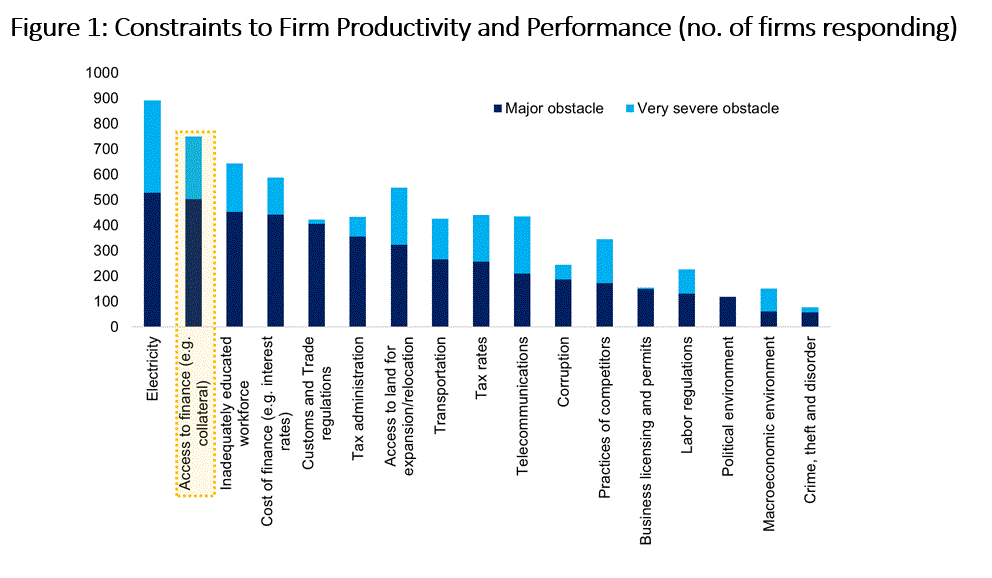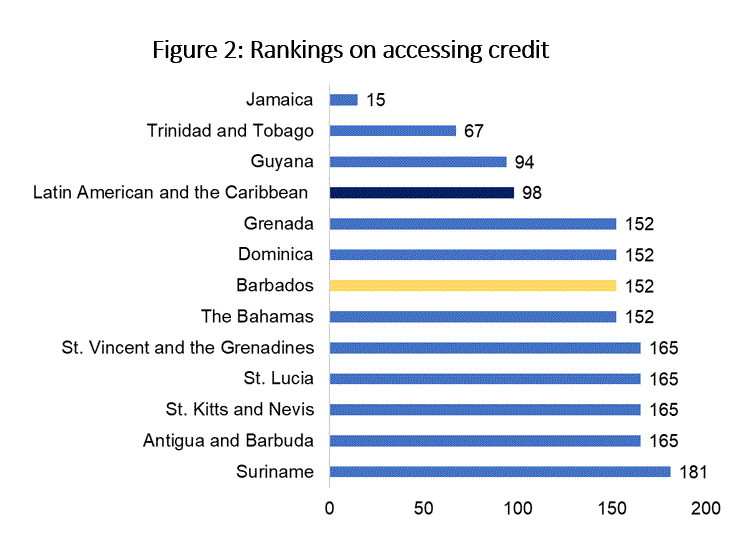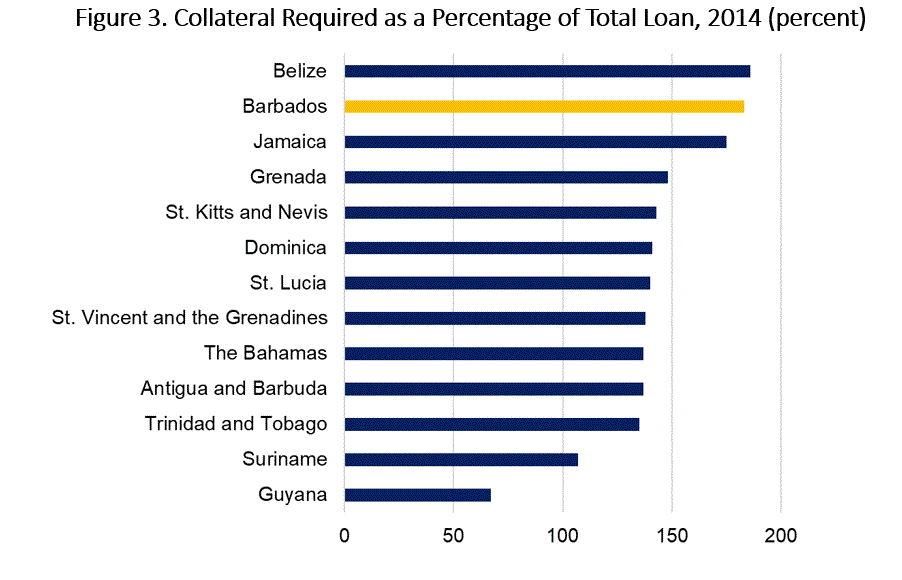On September 17th, 2019, the Small Business Association of Barbados hosted a conference as part of Small Business Week 2019 under the theme Small Size, Big Thinking-Changing the Mindset for Global Engagement. One of the key takeaways of the event was the importance of Micro, Small and Medium Enterprises (MSMEs) as drivers of economic growth and job creation.
In Barbados, the 2016 Small Business Association survey of MSMEs reveals that micro (less than 5 employees) and small (5 to 25 employees) businesses are a key source of growth and employment in the country; comprising almost 93 percent of formal enterprises. The results of the survey suggest that MSMEs account for over 60 percent of private sector employment and almost 48 percent of total employment. MSMEs also account for 39 percent of total exports and contribute to approximately 64 percent of the national value-added of the country.
MSME’s access to credit in Barbados
The panel on access to finance was undoubtedly the most contentious discussion of the conference. MSMEs highlighted challenges in accessing credit as a key constraint for their operations. However, deposit taking institutions did not seem to agree, stating that there are a wide range of products available for firms to access finance, based on their varying needs. Survey[1] data for Barbados shows access to finance as a key challenge to private sector operations (Figure 1). At the same time, in the latest Doing Business Report (DBR) on getting credit, the country ranked 152nd out of 190 countries, behind the average of 98th for the Latin American and Caribbean (LAC) (see Figure 2). From the discussion, the participants summarized that the challenges lie in use of unsuitable financing products for MSMEs, inappropriate financial record-keeping by these enterprises, lengthy and complex bureaucratic processes to bank and lack of institutional frameworks such as a public credit registry or bureau.


Source: World Bank Doing Business Report 2020 and 2014 PROTEqIN Caribbean Enterprise Survey.
How can the IDB Group help MSMEs overcome their challenges to access credit.
- Fostering greater credit risk information for potential borrowers. The absence of a credit registry or bureau in Barbados has likely supported higher borrowing costs and collateral requirements and was highlighted as a major challenge for MSMEs to access credit. Lack of a credit bureau contributed to Barbados’ low score in the Doing Business Report depth of credit information index score of zero versus an average of 5.1 for the LAC. At the same time, Barbados’ collateral required as a share of the loan amount exceeds 180 percent, which is the highest amongst the surveyed firms in all C-6 countries (The Bahamas, Barbados, Guyana, Jamaica, Suriname, and Trinidad and Tobago) (see Figure 3). Therefore, there is a need for a credit bureau, similar to the one being designed and implemented in Guyana, that will collect information on the creditworthiness of borrowers.


Source: 2014 PROTEqIN Caribbean Enterprise Survey
- Promoting more suitable financial instruments for MSMEs. As discussed in the event, there is a need to expand, better tailor and market the range of financial products to MSMEs. To boost innovation and growth within Barbados’ MSME ecosystem, financial instruments should be made available across the three (3) stages of the firm’s lifecycle (see Table 1). In Barbados, the eco-system has elements of financial products throughout the life-cycle, but it is disjointed. A good example of providing access to finance for existing firms was the IDB Sustainable Energy Investment Program, which provided the opportunity for existing firms to adopt new energy efficient technologies and processes through a mixture of grant and loan financing. Moreover, a recent innovative operation was approved in Jamaica which includes financing for firms at every stage of the life cycle (see Table 1) to promote sustainable and robust growth among startups and MSMEs.
- Supporting leaner bureaucratic process. Onerous administrative and documentary requirements for setting up accounts and undertaking various types of transactions, in part due to concerns relating to corresponding banking relations, were highlighted by participants as important challenges to financial access. Policymakers and regulators could consider ways to reduce related barriers, to the extent that this can be accomplished without compromising prudential and related standards. At the same time, increasing the use of technology to streamline application processes can reduce the burdensome bureaucratic procedures.
While the problems facing MSMEs are certainly complex, the IDB Group is here to support. The IDB has a firm commitment to supporting entrepreneurship and private sector development in Barbados, as highlighted in our recently approved IDB Group Country Strategy with Barbados (2019-2023). In addition, programs such as Compete Caribbean support Barbados and the Caribbean region in increasing productivity within private sector firms that will contribute to economic growth.


Leave a Reply